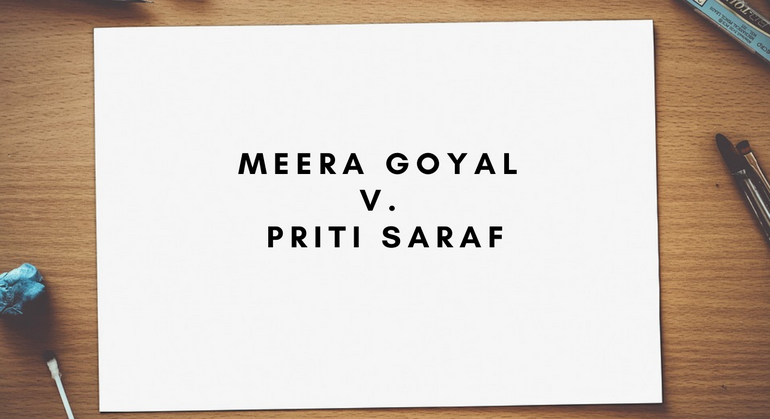

Meera Goyal v. Priti Saraf
The present dispute relates to a dispute that arose between the petitioner, who is the owner of certain property, and the respondent who sought to buy such property by way of an agreement of sale. The said property admeasured over 1205 square yards and the sale consideration was fixed at Rs. 63,28,50,750. The respondent initially paid a sum of Rs. 12.50 Crores as earnest money, and thereafter another Rs. 5.40 Crores.
However, the petitioner alleges that the respondent failed to pay the remaining balance within the prescribed timeline, and therefore, the petitioner terminated the contract. Accordingly, the respondent preferred petitions before the High Court of Delhi under S.9 and S.11 of the Arbitration Act, alleging that the petitioner breached the contract and therefore, the earnest money was liable to be refunded to the respondent along with damages. The parties were referred to arbitration by the Court.
During the arbitral proceedings, the arbitrator in the present case did not entertain the petitioner's oral objection under S.16(3) of the Arbitration Act that the respondent's claim was not covered by damages. The petitioner also filed applications under S.16(2) and S.16(3) of the Arbitration Act, which was again rejected by the arbitrator.
Therefore, the petitioner contended that the refusal of the arbitrator to entertain the above-mentioned applications under S.16(2) and S.16(3) amounted to passing an interim award which could be challenged under S.34 of the Arbitration Act.
Issue
The issue was whether the order passed by the arbitrator qualified as an interim award and if yes, then whether the same is liable to be set aside.
Judgment
The Court deliberated upon the issue and upheld that there had been no determination by the learned arbitrator on the objections raised by the petitioner. In such cases, the Court asks if it can be stated that any right of the parties was finally determined, this being an essentially necessary pre-condition for any order to be termed as an interim award under section 31(6) of the Arbitration Act. The Court clarified that the answer is simple and a clear 'no'.
The learned arbitrator had with abundant clarity upheld that the objections of the petitioner would be decided at the time of passing of the final award and, therefore, it cannot be deemed as a 'rejection' of the petitioner's objections. However, the fact remained that there had been absolutely no determination of the petitioner's objections until that point, as the arbitral proceedings were yet to be concluded. That being the position, the impugned award does not qualify as an interim award for the purpose of being challenged under section 34 of the Arbitration Act.



